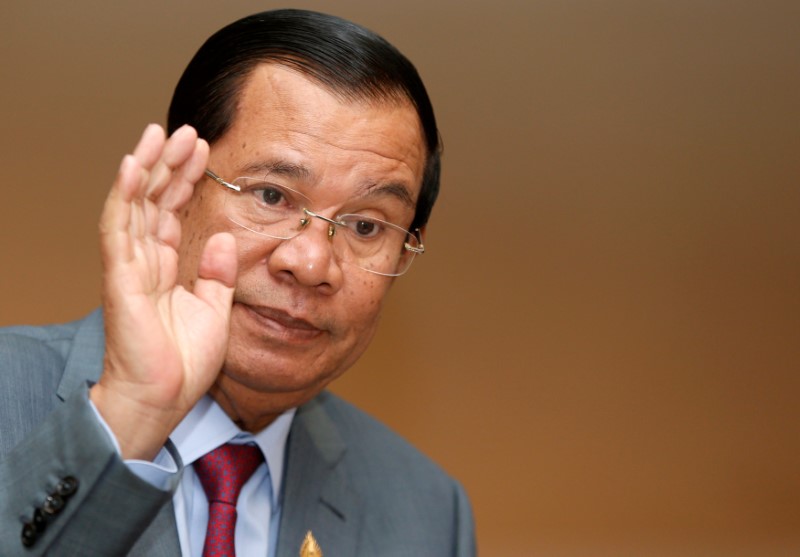By Prak Chan Thul
PHNOM PENH (Reuters) - Cambodian Prime Minister Hun Sen said on Monday it was "a fact" that the main opposition party would be dissolved as he spoke on the anniversary of the peace agreement that established multiparty democracy.
More than 50 rights groups called on the countries that signed the Paris Peace Agreements in 1991 to reconvene urgently because of the threat to democracy in the Southeast Asian country.
Hun Sen's government has asked the supreme court to dissolve the Cambodia National Rescue Party (CNRP) after its leader, Kem Sokha, was arrested on Sept. 3 and charged with treason. The court has yet to rule on whether the CNRP will be dissolved.
"Because they didn't respect the Paris Peace Agreement, the political party will be dissolved in the future, this is a fact," Hun Sen said at a ceremony marking the construction of a new bridge in Phnom Penh.
Dissolving the party would eliminate the challenge to him prolonging more than 32 years in power in next year's election, but Western donors have criticised the move and called for the release of Kem Sokha.
Hun Sen accused the United Nations of failing to bring peace despite organising the first election in 1993 and said guerrilla fighting had only ended because of his own negotiations with leaders of the genocidal Khmer Rouge.
Hun Sen's critics accuse him of trying to turn the country into a one-party state for the ruling Cambodian People's Party (CPP).
On Sunday, he said any elected officials who defect from the CNRP to his party would be allowed to keep their positions once the opposition party is dissolved.
In a joint open letter on Monday, more than 50 rights groups called for the Paris Conference on Cambodia to be reconvened.
"There is an urgent need for decisive action from the international community, to ensure that the democratic vision for Cambodia outlined in the Paris Peace Agreements is not completely forsaken," said the letter.
Hun Sen said calls for the original signatories to be reconvened were "out of date and impossible". He noted that one of the signatories, the Soviet Union, no longer exists.
In the face of the Western criticism since the arrest of Kem Sokha, China has given verbal support to Hun Sen's government. China is by far the biggest donor to Cambodia and its biggest investor.
China's influential Global Times tabloid said in an editorial on Sunday that Cambodia's "growth trend should not be interrupted by the country's rising political tension".

"As an important economic partner of Cambodia, China will pay close attention to the situation in the Southeast Asian country and willingly provide the necessary help," it said.